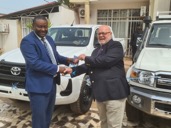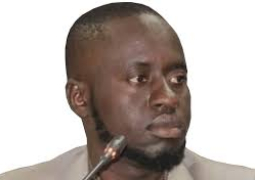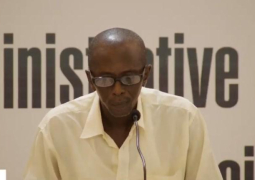
The materials, donated on Thursday, included two motor vehicles, motorbikes, laptops, video and photography equipment, and billboards.
Speaking at the presentation ceremony, David Belgrove OBE, British High Commissioner to The Gambia, said he was pleased the commission was able to support NHRC to extend their reach in The Gambia, especially that they have the mandate to ensure the TRRC recommendations are implemented across The Gambia.
Human Rights are the foundation of democracy and freedom thusthey need to be protected everywhere including the most remote areas, he says.
“Too often we see remote and rural communities experiencing ‘out of sight, out of mind’ in terms of human rights. Irrefutably, people in rural areas face severe challenges related to accessing, asserting and maintaining their rights,” he noted.
Despite widespread infringement of the human rights of agriculture workers and other rural and remote communities, awareness and concern about these violations is limited, the high commissioner stated.
“Often, rural and remote communities will suffer lack of access to education, health care and justice mechanisms when compared with urban communities. Frequently, they suffer from discrimination, systematic violations and historical disadvantages that have affected remote and people working in rural areas for decades.”
According to him, women, children, youth, indigenous peoples and migrant workers, who represent the largest proportion of the rural workforce, “often find themselves in circumstances that render them particularly vulnerable”.
He added that defenders of land rights in rural areas and environment and natural resources are frequently the first victims of criminalisation, intimidation and attacks against their physical integration and life.
“This is why it is so important that we enable those who have the independent mandate to investigate and shine a light on human rights violations; who can work with government, civil society and other partners to ensure human rights are available to everyone everywhere,” he urged.
For his part, Emmanuel Daniel Joof, chairman of the National Human Rights Commission, said the support,titled as“bringing human rights services closer to all individuals in The Gambia”, will significantly contribute to a more efficient, responsive and accessible NHRC.
“The effective operationalisation of the newly opened regional offices, with the requisite technical and vehicular support, would ensure the staff perform their functions optimally, make human rights services easily accessible and importantly, this will realize the decentralisation drive of the commission and its vision of “a Gambia where everyone enjoys their fundamental human rights and freedoms”.
He added that the vehicles would greatly facilitate movement to remote parts of the regions to popularise the work of the commission, register complaints of human rights violations and ensure prompt access to justice and remedial actions by reaching the farthest communities in rural Gambia.
“Investigation and monitoring are core to our mandate and you can only do it not only on your feet but with your feet,” Mr Joof said.
He also revealed that the laptops, video and photography equipment and billboard materials would greatly enhance the advocacy and awareness-creation efforts of the NHRC as well as contribute to the visibility of the work they do.
“The provision of 42 solar panels, 20 batteries and a 15KV inverter to solarize the national secretariat will enable the NHRC to not only cut the cost of the huge expenditure spent on electricity but will ensure continuous power supply and preventing interruption or delays in its services.”
Read Other Articles In Headlines





